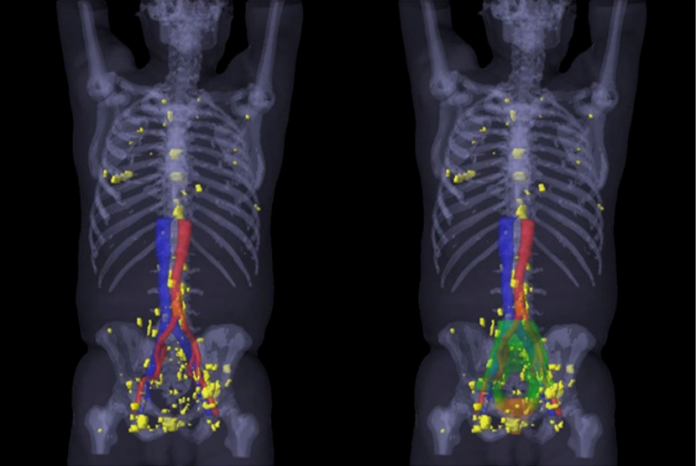Dorset Local Enterprise Partnership (LEP) and Bournemouth University (BU) have signed an agreement to create a new ground-breaking medical science institute in Dorset.
The new Institute for Medical Imaging and Visualisation will be a hub for Medical Imaging technology programme and research development, in partnership with education, clinical practice and commercial partners.
It will enable an eco-system of research, research-led innovation and educational programmes, enhancements in clinical practice, and opportunities for the commercial development of related intellectual property.
£1.4m was awarded to Bournemouth University by Dorset LEP through the Government’s Local Growth Fund to establish the institute and allow for the procurement of the MRI, 3D/4D ultrasound equipment and other machines.
Based in the University’s new Bournemouth Gateway Building, the institute will fuse together enhancements in clinical practice, commercial development in intellectual property and advancements in the next generation of 3D medical imaging. A skills gap in higher level technical provision will also be addressed, with particular focus on STEM areas, where employers will benefit from locally-trained skilled technicians who will boost productivity, as well as address social mobility.
The proposed Institute will mirror the success of the Orthopaedic Research Institute, by achieving innovation in key areas for Dorset, providing significant additional education to fill a skills need, as well as securing key business engagement to realise and commercialise innovations. In doing so, this will align to BU’s strategic vision whereby medical science has been identified as a priority area for strategic growth.
Acting as a catalyst for regional economic development related to medical science, it has a close fit with Dorset LEPs strategic objectives and, importantly, a close alignment with UK Government’s Industrial Strategy.
It is also likely to form part of Dorset’s Local Industrial Strategy currently being developed by Dorset LEP to help inform local choices and drive Dorset’s productivity, prosperity and inclusive growth.
Minister for Local Growth, Jake Berry MP, said: “We’re committed to boosting economic growth across the whole of the UK and building a Britain fit for the future.
“Thanks to over £1.4m of Local Growth Funding, this state-of-the-art institute will be equipped with the tools and resources it needs to be a global leader in innovative medical research while driving partnerships between the best minds in science and business throughout the UK.”
Jim Stewart, Chair of Dorset LEP said: “As one of the top 150 young universities in the world, Bournemouth University is a major economic asset to Dorset, and with innovation as one of the primary drivers of economic growth, is likely to feature strongly in our Local Industrial Strategy.
“Dorset LEP is pleased to have already invested over £1.65 million Growth Deal funding to help create a nationally and internationally renowned facility delivering cutting edge solutions to aid recovery from orthopaedic surgery at Bournemouth University. This new Institute for Medical Imaging and Visualisation will help to further position Dorset as a pioneer for ‘healthy living’ for medical technology and a leader in health innovation.”
Professor Stephen Tee, Executive Dean of the Faculty of Health and Social Sciences at Bournemouth University said:
“As the use of artificial intelligence, computer visualisation and augmented reality continues to complement advances in medical technology both nationally and globally, it’s crucial that significant investment is put into these areas. Bournemouth University is pleased to have been allocated more than £1.4million of funding from Dorset LEP to develop an Institute for Medical Imaging and Visualisation at BU that will serve to bring together those working in research, education, medical industries and healthcare services from 2020 and onwards into the future.
“This important Growth Deal funding enables us to explore new research areas and build a new suite of programmes that will develop highly-skilled technical and medical roles within the region.”







